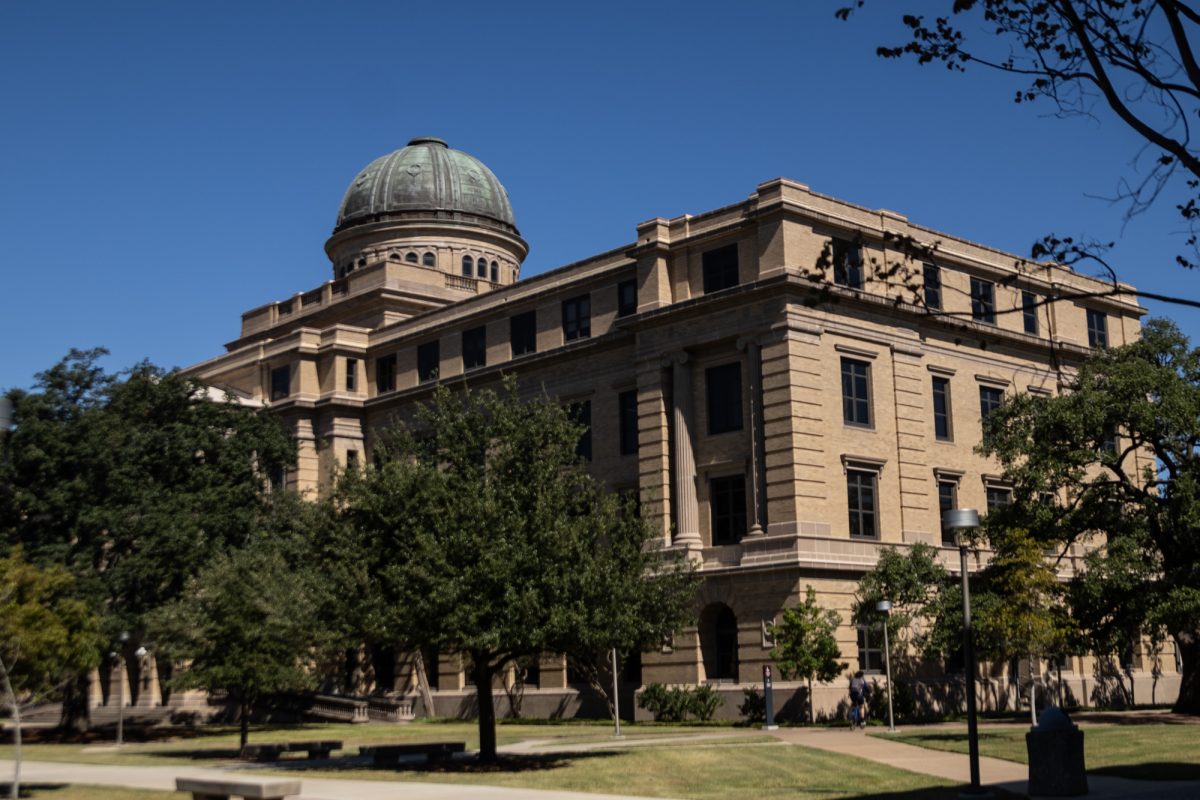The 74th Session of the Texas A&M Student Senate held a meeting on Wednesday, March 30, passing legislation concerning access to open educational resources for students, better support for students at risk of homelessness and expressing a need for an increase in interfaith prayer spaces on campus.
Despite this work, the meeting was rocky from the very start, with the meeting having to start 12 minutes after the intended time due to the agenda being sent out late. Continuing what has become a trend in this session, calls for quorum before votes were needed, and quorum was barely reached. This all paled in comparison to the last piece of legislation brought forward: the Students Against Squirrels resolution.
Authored solely by Dylan Bohn, management senior, this resolution “condemns the existence of all campus squirrels and their right to live” and “demands that [Student Body] President Natalie Parks mobilizes the Corps of Cadets to declare war against the squirrels and their allies.”
Despite the comical nature of this resolution, Bohn claimed this piece of legislation is the same as everything else the Senate has passed.
“What I have introduced today is exactly the same caliber of quality that has been introduced in every single resolution or legislation that has entered this room in this entire session,” Bohn said.
Bohn said he has “seen the Bee Movie” in response to a question about the possible ecological ramifications of this resolution.
After many questions concerning the reasons behind this resolution, including from Academic Affairs Committee Chair Samuel Jefferis, a computer science senior, questioning whether this was the best use of everyone’s time, which was met with thunderous applause, a motion was made to postpone this bill indefinitely.
Rules and Regulations Committee Chair Meghan Hein, an agricultural economics junior, made this motion, saying, “I just feel embarrassed at this going in the archives.”
Bohn continued to debate for this piece, claiming “this entire session has been comic relief.” Despite this, the motion passed, with Bohn being the lone dissenting vote, and the meeting was allowed to proceed.
Continuing their work advocating for students, the Student Senate passed a bill authorizing the Legislative Relations Committee to advocate for more state funding toward open educational resources. These resources, already adopted in a few A&M courses, aim to reduce the cost of education by eliminating the cost of textbooks.
Written by members of the executive Legislative Relations Committee, including Vice President Sydney Ramon, a political science senior, and Chief of Staff Abigail Jablon, a political science junior, the authors of this legislation said there was a huge increase in the price of textbooks, citing a 812% increase since 1977, outpacing increases in housing costs, wage growth and inflation.
Another bill passed concerned students experiencing homelessness. The bill aims to provide more resources for students who may be experiencing homelessness, including advocating for the introduction of a liaison position who would be a point of contact with knowledge of the resources available to such students and how they can get help. This bill follows the path of other such bills, specifically one in Illinois, that have aimed to help homeless students.
Both the bill regarding open education resources and student homelessness passed with unanimous approval.
Finally, the Senate body heard many presentations about desired rule changes to the Student Government Association code. These changes would include updated vacancy procedures, new powers for the Internal Affairs Committee and the possibility of moving a session into a private session, excluding any guests from the private meeting.
Most of these acts were undergoing their first full reading, meaning that they were not voted on and will be considered by committees before the next meeting on Wednesday, April 13. However, the Omnibus Act was voted on and failed to garner the two-thirds majority it needed.
The act proposed many changes to the code, the most controversial being delegating the authority to check the power of the executive branch to the Internal Affairs Committee and not the Senate body.
Proponents of the act said this was a necessity, especially during summer session when the Senate does not regularly meet in full. Opponents pointed out the huge increase in power this would be and the possibility of misuse.
The opponents of this act won out, and the act was voted down by a vote of 13-22.
With this meeting, the 74th Session only has two more full sessions to pass legislation before the joint session of the 74th and 75th sessions on April 27. With all of the legislation sent to committee this week, these next two meetings promise to be packed full of discussion.










